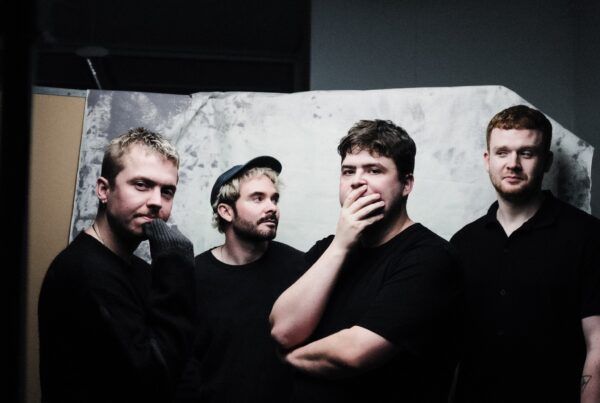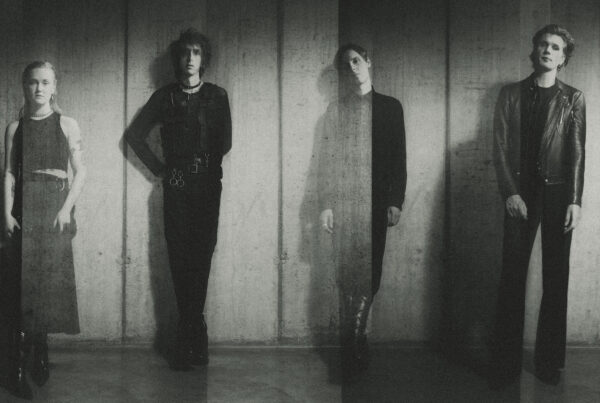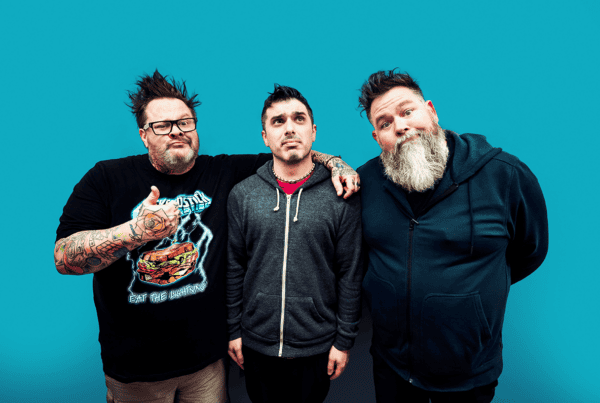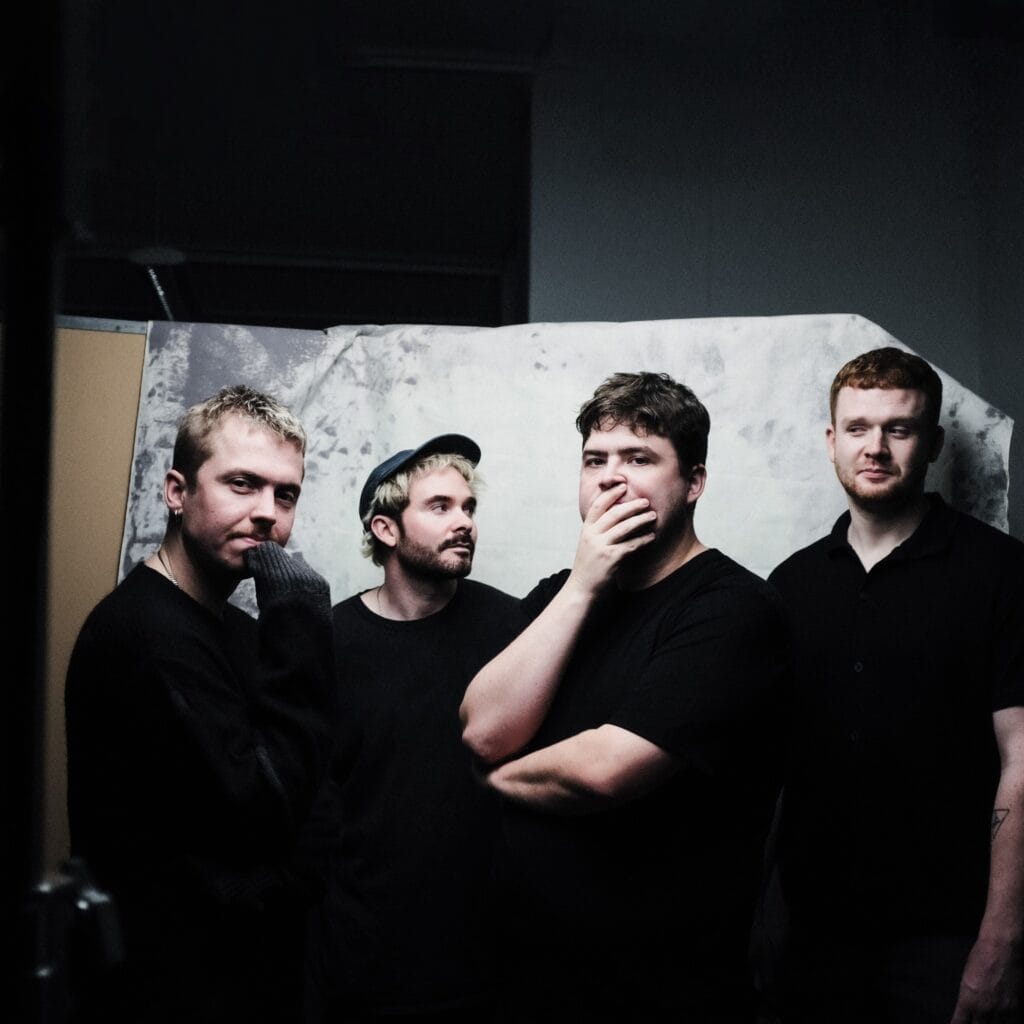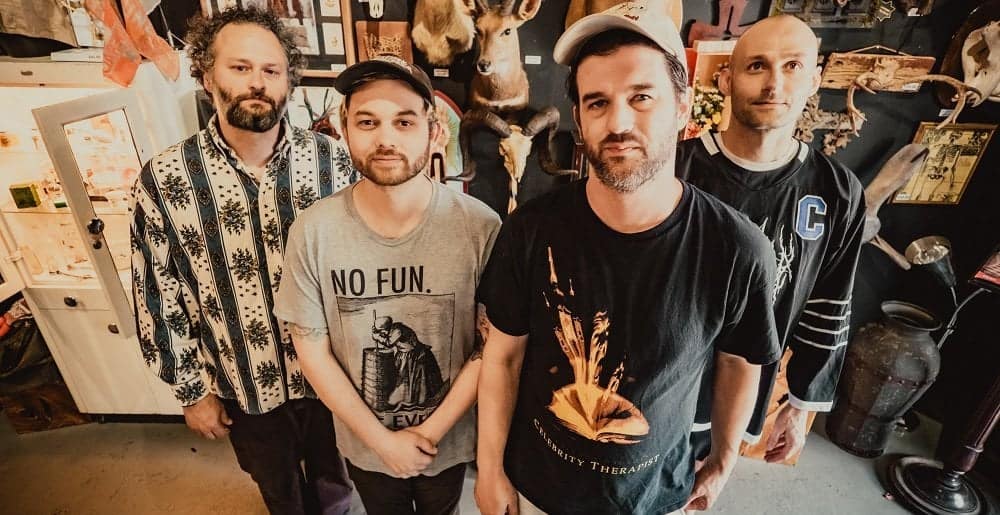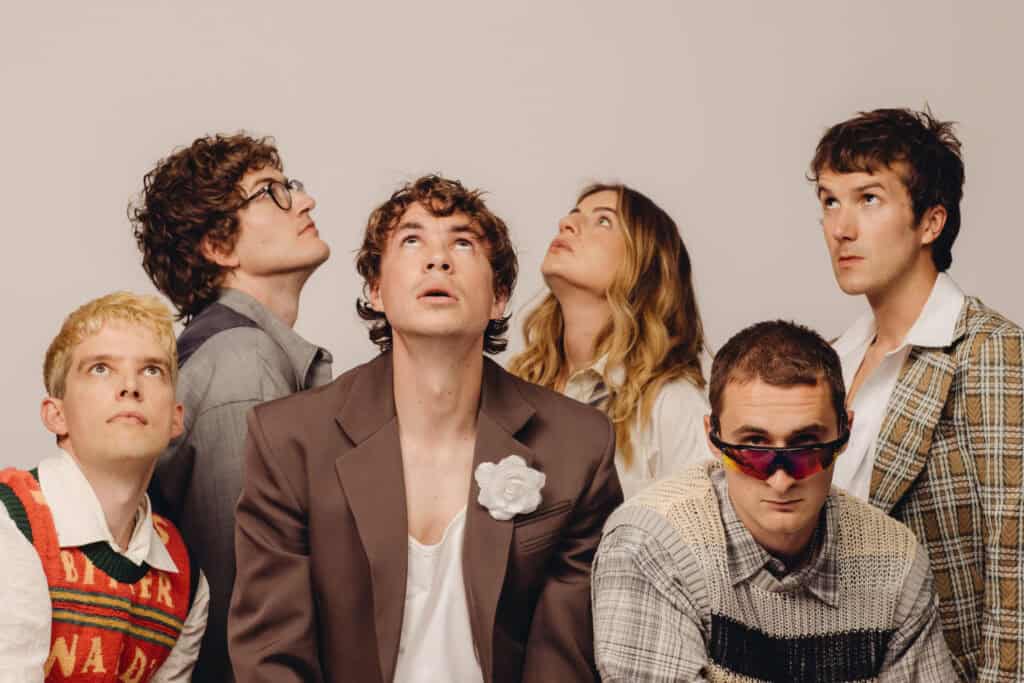With the chameleonic release of their fifth chart-climbing studio album ‘RITUALS’, we spoke to vocalist and guitarist James Veck-Gilodi at Leeds Festival about their evolving sound, their roots and what’s next for the alt-rock five-piece.
[like_to_read][/like_to_read]
RITUALS has been a transformative album for you guys. What was your intention when you were making the album and how was this received by the fans?
Though we didn’t intend it to, Rituals became an album with a lot of pop influences. I wrote a lot of it on a keyboard, when usually I’d write it on a guitar. But we’re incredibly happy with it. It was received weirdly well by the fans – I say that because it was such a risk, because our sound originally had been a lot heavier.
As a band, you formed in King’s Lynn. What was your experience as a rising band coming from an area without the support of an established music scene that you would find in the likes of London or Manchester?
I have to say that outside of London and Manchester, the music scenes are almost non-existent. The main reason we started playing music was because there was nothing else to do – there were no other bands coming from Norfolk at that time. If you’re not a cover band playing in a pub, no one cares. We would be performing our own original material, and we’d have people in the audience asking “Can you do an Oasis cover?” There was nothing for us there. We only started to get noticed when we began playing out of that area. There is no music scene in Norfolk, it’s like they live in a little bubble from the rest of the UK. My advice to any band coming from a place like that would be to save up and move to Manchester, Glasgow or London to really give yourself a chance of breaking through.
Something that is often neglected in the music industry is just how physically and mentally demanding touring can be for musicians. How do you stay healthy and take care of yourself?
We don’t really cope or stay healthy on tour, if I’m completely honest. It’s very bad for you. When we do weekenders like this, we drink a lot and don’t really look after ourselves. You can kind of get away with it for a couple of days. But when you’re on tour you have to try and eat healthily. I struggle to sleep a lot when I’m on tour, and of course you miss people. You’re expected to be on all day. For example, yesterday I had no time to eat because I had to talk to the press all day and then go straight to performing. For me the physicality is not as taxing as the strain it puts on you mentally. I’ve struggled with it a lot myself. The main thing that helped me overcome it was fully immersing myself in what I do. When you can accept the fact that you have a problem or a mental illness, you can start to own it instead of letting it own you. If you can escape from it by playing music or anything creative, it takes a weight off your shoulders. I think you’ve just got to be thankful. The fact I get to play music as a living is pretty amazing, but like everything it comes with a price.
What festivals are highlights for Deaf Havana?
I think Reading is our favourite. Unfortunately, we’re Southerners, so we have to be biased as that’s where our friends are. Everyone you know is there. You walk into the guest area and everyone I’ve ever met in my life is there. Although Leeds is a lot more chilled out than reading, which is great because I always put a lot of pressure on myself to play Reading, whereas at Leeds I allow myself to relax a little. There always seems to be a better show at Leeds. Reading & Leeds are easily the best festivals I’ve ever played.
At what moment did you realise “We’ve made it”?
We still haven’t. We used to be a lot heavier. When we recorded the first record that I’d written, we just thought “Okay, we can do this”, and that was what secured it in our minds that we can actually do this as a career – not just as a hobby.
What is the ‘end goal’ for Deaf Havana?
It’s really difficult. It depends on what you personally define success as. I haven’t reached the financial goal I want to reach, but I’ve been able to travel around the world playing music with my best friends for free – and sometimes get paid as well. In most people’s eyes, that could be considered success. If you’d have told me ten years ago that I’d be able to go to Australia and play to a thousand people, I’d never believe you. But you become accustomed to it. I don’t think there ever will be an end goal, exactly. I’m always going to want something more. A milestone for us though is that we’ll be headlining a show at Brixton Academy which is my favourite venue. Though it’s a milestone, I don’t think it’s as far as success could go. I don’t know, I don’t think I will ever consider myself successful.
What’s next for you guys now you’ve released RITUALS?
We go on tour in November, then next year we’re going to be on tour for the whole year – that will be very fun. We’ve never toured a record properly; I want to go to every territory. We’re going to put everything into this record.

